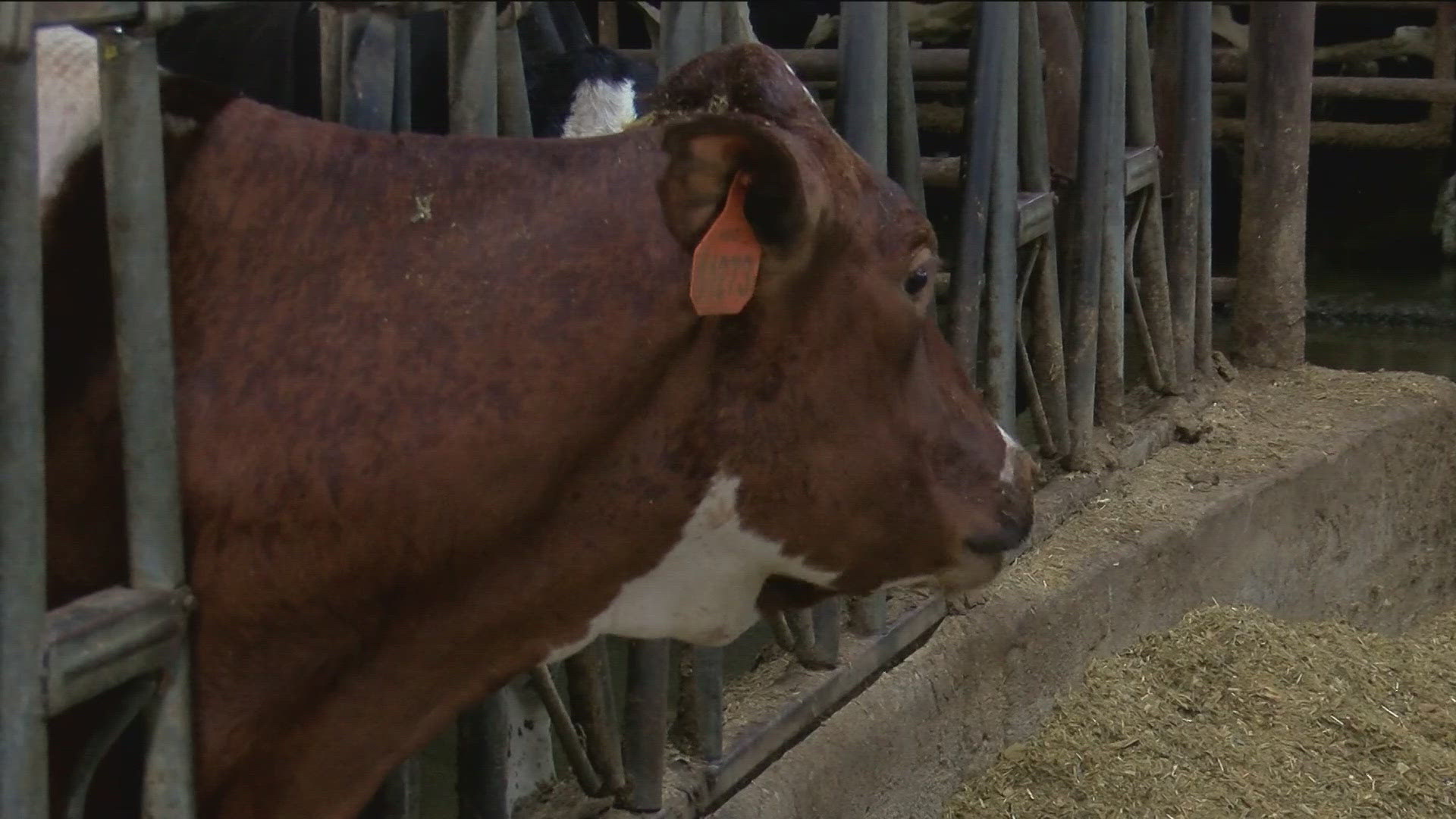WOOD COUNTY, Ohio — The Ohio Department of Agriculture announced Tuesday that officials are working to contain and treat a confirmed case of bird flu in a dairy cow herd at an unnamed dairy farm in Wood County.
Highly Pathogenic Avian Influenza, otherwise known as H5N1 or bird flu, is a disease that originates from wild birds and chickens that is transmissible to other animals, including humans. Transmission can occur from contacting infected animals or surfaces.
The ODA said in a press release the currently infected cows in the unnamed Wood County dairy herd came from a Texas dairy farm on March 8.
Since then, six states, including now Ohio, have been confirmed to have a case of bird flu.
In Ohio's case, since the transmission pathway is known, officials can do a better job of isolating sick animals from healthy ones.
"That's a very important factor because we can show direct linkage back through what we call epidemiologically linked herds," said Dr. Dennis Summers, state veterinarian for the ODA. "We can show the movements back and those animals, when they go back into their herd, there may be some transmission from cow to cow within that herd, but it's not like the dairy next door is getting the same thing, because there is no direct link."
Officials say humans are highly unlikely to come down with a severe case of the disease. However, on April 1, the Texas Department of State Health Services confirmed a case in a person who had exposure to the infected dairy cattle.
The individual ended up with a case of conjunctivitis, or pink eye, and was treated with an anti-viral drug and is recovering, giving experts confidence that this is not a disease to panic about for humans.
With cows, Summers said that farmers should be aware and cautious, but not to panic either.
"It's not showing the normal clinical science that you would expect to see in poultry," Summers said. "It's showing different clinical science. It's not really having a high mortality rate in dairy cows in general. It's causing sick cows, but it's not killing cows."
The best thing you can do? Always practice safe hygiene.
"Bottom line is: wash your hands, cover your cough, get vaccinated from viruses," said Sharon Schaeffer, a professor in the health and human services department at Bowling Green State University. "We still have COVID in our communities, we still have seasonal influenza."
For those who are concerned about dairy products, according to the statement in the ODA's press release from the Food and Drug Administration and Center of Disease Control, "there is no concern about the safety of commercially pasteurized dairy products due to both federal animal health requirements and pasteurization and the public health risk associated with HPAI remains low."
MORE FROM WTOL 11:

